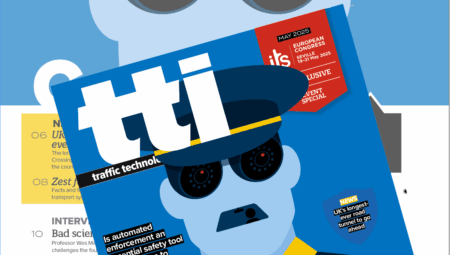ITS Australia has released the ‘Smart Transport for Australia Report’, which is a review of the country’s smart transport technology industry, identifying future opportunities for safer, more efficient and sustainable transport.
Launched at an ITS Australia business networking event in Brisbane, the new report makes use of opportunities presented by last year’s hugely successful Intelligent Transport Systems (ITS) World Congress in Melbourne, which attended by more than 11,500 delegates from 73 countries. The congress benefited the country’s economy by A$25m (US$19m) and connected Australian governments, businesses, researchers, and start-ups, with a multitude of international organizations. The ITS Australia Report was produced by Fivenines Consulting, sourcing information from congress presentations and papers, and interaction with the ITS Australia Board. In addition, on-site face-to-face interviews were conducted with key industry thought-leaders, providing authentic insights, based on genuine industry knowledge and experience.
The Smart Transport for Australia Report provides examples of local and international initiatives, and identifies seven key areas for opportunity, with a focus on Australian considerations, including:
Pathways to connected autonomy;
Mobility for smart cities and communities;
Next-generation public transport and Mobility as a Service (MaaS);
Big data, analytics, ownership and access;
Future freight;
Transport pricing and funding;
Frameworks for success.
ITS Australia’s president, Brian Negus says Smart Transport for Australia has significant implications for the country. “We are in a unique position to harness technology to enhance the liveability of our cities and communities,” explained Negus. “Australia is a global leader in transport technology and an early adopter of innovation and initiatives. Utilizing technology and real-time data, in a shared and open environment, provides an opportunity to improve safety, reduce congestion and pollution on our networks, and increase mobility.”
ITS Australia’s CEO, Susan Harris says congress presenters and report contributors provided a rich source of information, and assisted with the identification of future areas of opportunity. “The Australian ITS industry already enjoys a strong global reputation and is a significant contributor to the economy,” Harris noted. “This Report explores future opportunities to be smart in the development and deployment of technology-based transport outcomes for the years ahead. The benefits for Australia are clearly recognized, with nearly every Australian state currently trialing a connected and automated vehicle initiative, including highly automated vehicles and driverless shuttle buses providing last mile solutions.”
Harris concluded, “MaaS, big data, the Internet of Things (IoT), national harmonization of legislation and future funding models are among the myriad ideas being pursued to improve connectivity and mobility for freight, public and private transport users. What is exciting is that, while we have come a long way, there is still a lot more to come.”




